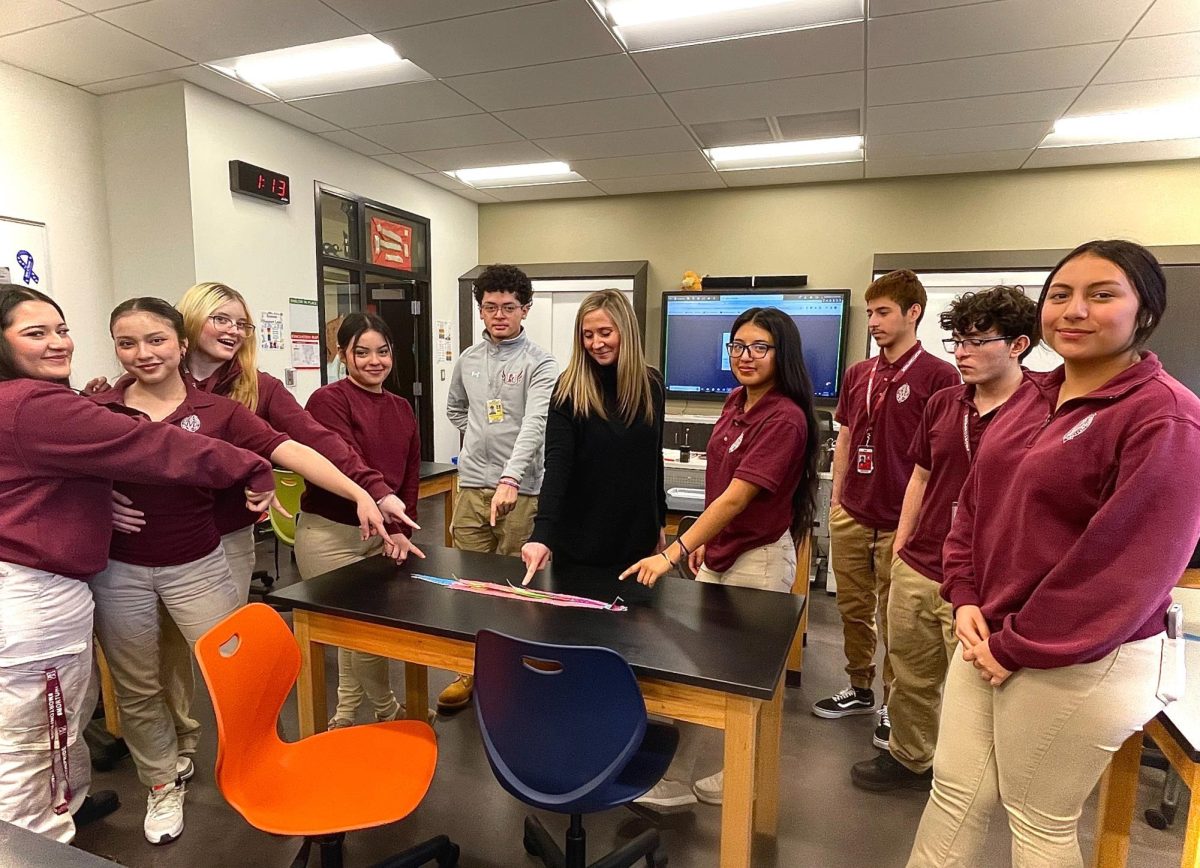Scientists are performing animal testing in laboratories for research by forced chemical exposure, oral force-feeding, forced inhalation, injection into the body, genetic manipulation, food and water deprivation and many other ways.
According to downtoearth.org, animals endure chemicals being dripped into their eyes, injected into their bodies, forced up their nostrils or forced down their throats. They are addicted to drugs, forced to inhale/ingest toxic substances, subjected to maternal deprivation, deafened, blinded, burned, stapled, and infected with disease viruses.
“I think animal testing should end. Animal testing is outdated, inhumane and unnecessary. With the advancements we have made in medicine and technological advancements, it is really unnecessary to continue testing on animals- whether it is for cosmetic testing or medical research. The animals most commonly used in animal testing are mice, rats, rabbits, chimpanzees, and monkeys, who do have similar anatomies to humans, but yet, are so different as well. So, it’s unrealistic to expect the same results to occur in humans or the same effect,” says science teacher, Maria Berezniak.
The lack of environmental enrichment and the stress of their living situation cause some animals to develop neurotic types of behavior such as incessantly spinning in circles, rocking back and forth, pulling out their own fur, and even biting themselves.
“Animal testing exacerbates the idea of animal speciesism. This is similar to racism except that it applies to animals other than humans. Speciesism suggests that animals are not as significant or important as humans. It suggests that they are not equal to humans. These misconceptions continue to support the idea that animals are ours to be used for animal testing, our entertainment, for food and for profit,” said Berezniak.
In tests of potential carcinogens, subjects are given a substance every day for 2 years. Other tests involve killing pregnant animals and testing their fetuses.
“I would consider adopting an animal that has been used in animal testing if the opportunity presented itself. I always support adoption,” said Berezniak.
According to biobide.com, animal testing has benefited researchers in understanding how to treat and prevent various conditions such as high blood pressure, diabetes, tuberculosis, poliomyelitis, muscular dystrophy, and Parkinson’s disease.
“I would prefer to find alternative ways to test for medical purposes, but if it comes down to that animals are the only effective solution, then I think it should continue,” said senior, Yadira Cervantez.
According to petaasia.com, an investigation into a Laos monkey farm where monkeys were held for international research labs found emaciated monkeys confined to barren cages, where dead monkeys were left to rot, monkeys with injuries fought each other because of crowded conditions, and monkeys were driven insane from confinement.
“If an animal was put through severe, cruel testing, I believe it should be euthanized and put out of its misery,” says Cervantez.
Animals and humans have many shared conditions, diseases, and genes. Most veterinary drugs are based on similar drugs used by humans. Diabetes studies in dogs and rabbits were performed to explore the option of treatment with insulin. Today, insulin is a major treatment for many conditions in animals
“I understand the importance of medical research BUT I do not support the suffering, confinement, and inhumane treatment of any living thing. I truly hope that in the future we can find alternatives to testing on animals to continue to make advancements in modern medicine,” says Berezniak.
Animal testing for cosmetics was banned in 44 countries, according to the Humane Society. It includes the whole of Europe. However, there are plenty of countries where no bans are in place.
“Animal testing should not be legal, it’s cruel and no creature should ever go through the suffering of testing,” said Cervantez.
Over 90% of animal tests fail human clinical trials, rendering animal use in testing pointless.
“I don’t believe animal testing is necessary because in most cases when it comes down to it, the testing doesn’t even work,” said Cervantez.
Animal testing helps researchers answer questions of biological uncertainty and contributes to the advancement of both human and animal health.
“I know it would be hard work to help an animal after being tested due to their fragile state, but I would consider adopting them,” Says Cervantez.
According to dosomething.org, over 100 million animals are burned, crippled, poisoned, and abused in US labs every year.
Many people don’t understand what animal research is and how it is regulated. Only 30% feel they are “well informed” about the use of animals in research, and 55% would like to know more about efforts to find alternatives and improve animal welfare.
“The majority of my cosmetics are not tested on animals. I typically do my research before purchasing a new product and I am more likely to purchase it if it is cruelty-free. I buy a lot from LUSH cosmetics because their cosmetics have not been tested on animals and are vegan. Unfortunately, some of my cosmetics I still need to find a cruelty free alternative for,” says Berezniak.




Mari Aviles • May 16, 2024 at 12:29 pm
I myself am vegan for the animals. Just like humans, animals deserve to live their lives to the fullest without going through the daily suffering they receive from animal testing, the dairy and food industry, animal hoarding, animal fighting, abuse and neglect, the fur industry and animals used for entertainment purposes such as horse-drawn carriage rides, circus, film and print, etc…
Please continue to write articles similar to this. We need to be their voices.
Jazmin Zarate Merino • Apr 12, 2024 at 7:48 am
A problem I noticed was in many everyday items have a lot to do with animal testing aside from makeup and medicine. Some that are sunscreens, toothpastes, and hair produces.